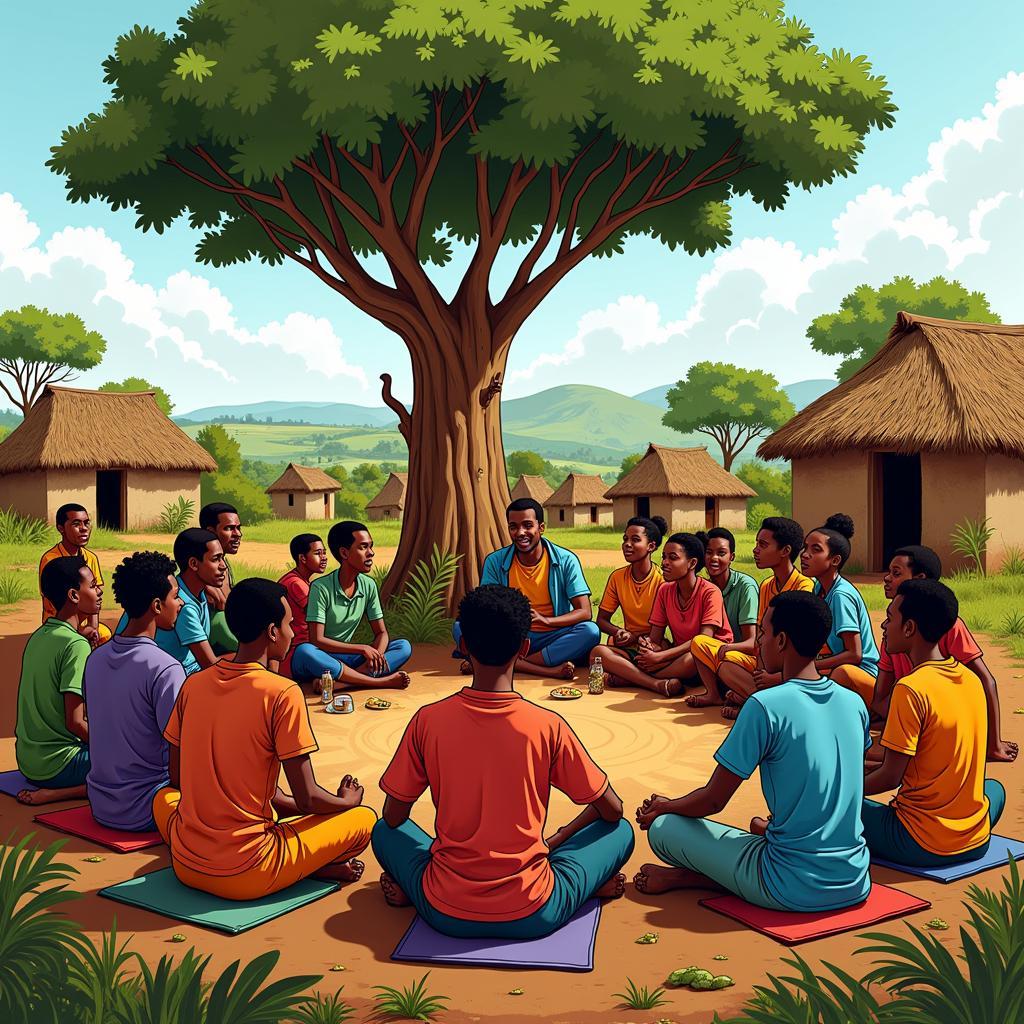The Power of Ubuntu: Understanding African Community Building
The spirit of community is deeply ingrained in the fabric of African societies. This concept, known as “Ubuntu” in many Bantu languages, emphasizes the interconnectedness of humanity and the importance of collective responsibility. Understanding African Community Building means recognizing this philosophy, which transcends geographical boundaries and cultural differences, offering valuable lessons for the world.
Traditional Practices and Their Modern Relevance
Historically, African communities have thrived on shared values like cooperation, mutual respect, and a strong sense of belonging. These values manifest in various ways:
- Communal Land Ownership: In many African cultures, land is seen as a shared resource, fostering a sense of collective responsibility for its use and preservation. This practice, while evolving in modern times, still influences land management policies in some regions.
- Collective Decision-Making: Traditionally, decisions affecting the community are often made through consensus-building processes, ensuring everyone’s voice is heard and respected. This approach, while challenging, promotes unity and reduces potential conflict.
- Ubuntu in Child Upbringing: The famous proverb, “It takes a village to raise a child,” is deeply rooted in African traditions. Children are often raised by extended family and community members, fostering a strong social safety net and a sense of shared responsibility for their well-being.
 African Village Meeting
African Village Meeting
Challenges and Opportunities in the 21st Century
While the core principles of African community building remain relevant, modernization and globalization present new challenges and opportunities:
- Rapid Urbanization: The rapid growth of cities in Africa brings about challenges in maintaining traditional community structures and values. However, it also creates opportunities for innovative approaches to community building in urban settings.
- Economic Disparities: Addressing economic inequalities is crucial for fostering inclusive communities. Initiatives that promote equitable access to education, healthcare, and economic opportunities are essential for sustainable community development.
- Harnessing Technology: Technology can play a transformative role in connecting communities across geographical barriers and facilitating communication and collaboration. Online platforms and social media can be leveraged to strengthen community ties and promote social cohesion.
The Global Impact of Ubuntu
The philosophy of Ubuntu offers valuable lessons for a world grappling with increasing individualism and social fragmentation:
- Fostering Empathy and Compassion: Ubuntu emphasizes the importance of seeing ourselves in others and recognizing our shared humanity. This perspective is crucial for building bridges across cultural divides and fostering understanding in an increasingly interconnected world.
- Promoting Peace and Reconciliation: The principles of dialogue, forgiveness, and restorative justice, deeply rooted in African traditions, provide valuable frameworks for resolving conflicts and building lasting peace.
- Sustainable Development: The emphasis on collective responsibility aligns perfectly with the principles of sustainable development. Ubuntu encourages us to consider the needs of future generations and to work together towards a more just and equitable world for all.
Embracing Ubuntu in the Digital Age
The spirit of Ubuntu can be embraced and celebrated in our increasingly digital world:
- Supporting Ethical and Inclusive Technology: As technology plays an ever-increasing role in our lives, it is crucial to advocate for its ethical and inclusive development, ensuring it benefits all members of society.
- Building Online Communities: Online platforms and social media can be used to connect with others who share our values and interests, building virtual communities that transcend geographical boundaries.
- Amplifying Marginalized Voices: The digital space provides a platform for amplifying marginalized voices and sharing diverse perspectives, fostering greater understanding and empathy across cultures.
Conclusion
The concept of African community building, deeply rooted in the philosophy of Ubuntu, offers a powerful and enduring model for fostering social cohesion, promoting sustainable development, and building a more just and equitable world. By embracing the principles of interconnectedness, collective responsibility, and shared humanity, we can draw inspiration from African traditions to create stronger and more vibrant communities for generations to come.


